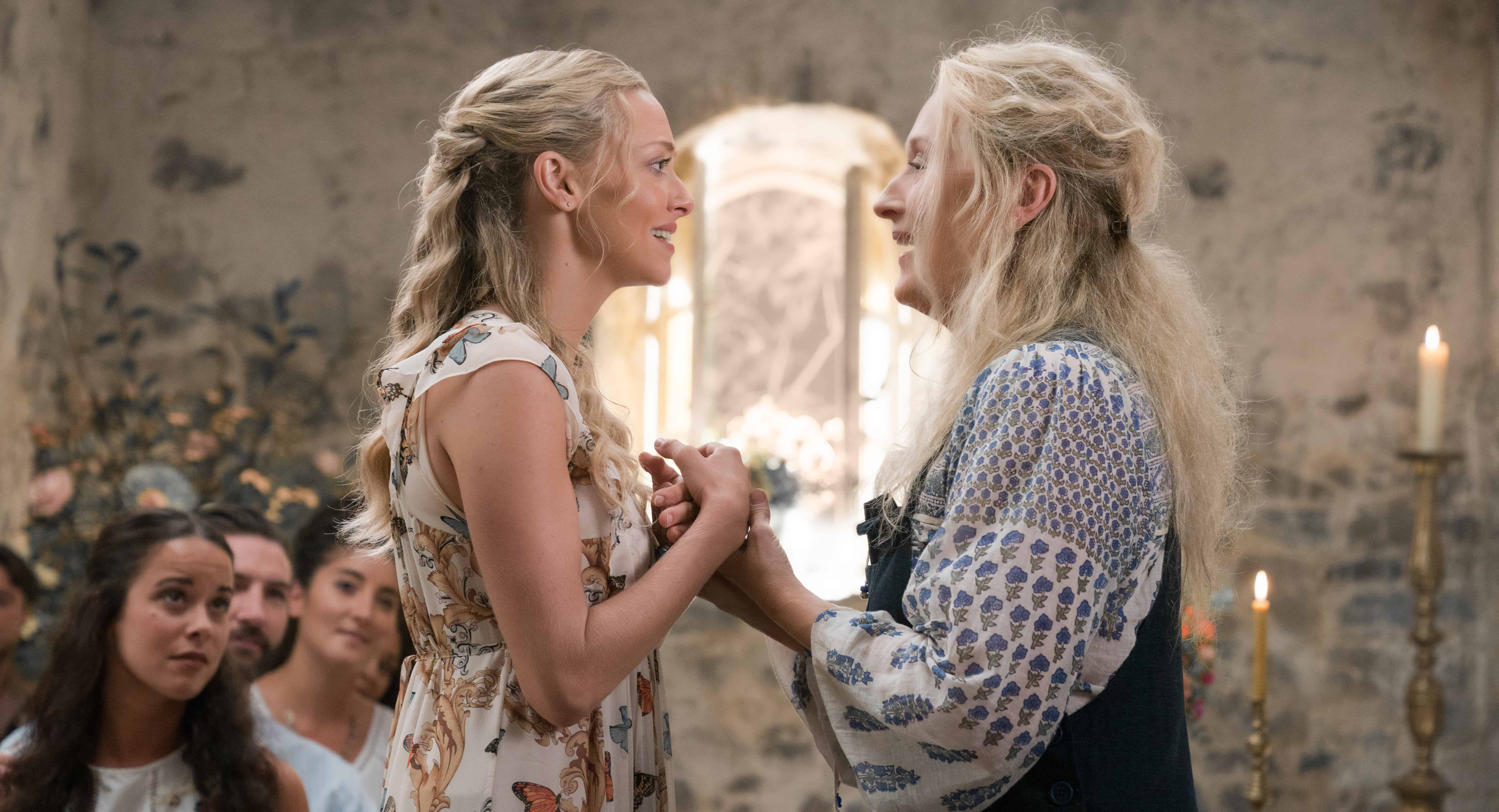Relaxing at a taverna against the backdrop of the sun glistening in the clear blue water surrounding a fantastical Greek island sounds like the perfect summer escape.1 Add in the songs of ABBA, and it just sounds like paradise. It was as true a decade ago as it is now, which is why Mamma Mia! Here We Go Again was a major hit this past weekend. Unlike the first film based off the 1999 West End musical, however, this prequel-sequel has depth.2 It is simultaneously a pro-life and (non-traditional) superhero movie.
Some have criticized the film for glamorizing hookup culture. In Catholics circles, this criticism of our postmodern culture has received more airtime this year due to today’s 50th anniversary of Pope Paul VI’s letter Of Human Life. This letter addressed to the entire world – not just Catholics – prophetically warned that widespread rejection of the meaning of authentic love would lead to devaluing the human person, specifically an epidemic of infidelity in relationships (and thus a breakdown of the family) and the rampant treatment of people as sexual objects to be used and disposed of that the #MeToo movement has brought to light.
As important as this criticism is of so-called “free love,” we as Christians also need to be aware of how we express that criticism in our lives. In the original film, we find out that when Donna told her devout Catholic mother that she’s pregnant (without being married), her mother told her “not to bother coming back [home].”3 Confusing judgment of a wrong decision with condemnation of the person – in other words, a lack of mercy – is sadly a flawed understanding of what we believe about morality. When we are pro-life and pro-love, we are never called to condemn someone for who they are even when we know that what they did has missed the mark. We need to care for the whole person.
(Editor’s Note: The following contains details of what happens in the film.)
A great example of this care in the film is during a musical number where an older, local woman sees young Donna (Lily James) sitting by herself against a wall going into labor, highlighting the vulnerability of her situation. Not caring about how she got pregnant, the local woman helps Donna deliver the baby. This seemingly forlorn scene is juxtaposed with scenes of present-day Sophie, Donna’s daughter, discovering that she too is pregnant. She, however, is surrounded by friends and family, with a potentially self-sufficient hotel that she is opening – what some would call “having it all.”
Despite their dissimilar contexts, both discover in those moments that being a mother draws out of her a type of love that until then was foreign to her, a love that runs so deeply she would do anything for another person. The life of a growing child within her has allowed her to experience a heroic love that changes her life forever.
Even though it has been called a prequel-sequel, it’s really this prequel story of young Donna that drives the film. In the prequel parts of this film, after witnessing the emotional carnage left in the wake of her mistakes – including: 1) Harry losing his virginity to Donna, 2) Sam having sex with Donna despite being engaged and then her finding out about it, and 3) Donna having sex with Bill, signalling to both Harry and Sam that she’s moved on – we finally witness the redemption of true and authentic love. Pope Paul VI’s letter acknowledges that in our culture today, true and authentic love often seems impossible, because it requires heroic effort. Isn’t that part of the appeal of superhero movies though, that we look for something to strive for, that we want to see people overcome seemingly insurmountable odds? We all want to be heroes deep down, but when it comes to living our lives, there often seems to be a disconnect.
As Christians watching this film, we are reminded that not only are we called to heroic living that affirms and celebrates life, but also that Jesus is able to work through the mistakes we’ve made and the hurt we’ve felt along our life’s journey in order to more palpably accentuate the beauty of this love that Donna and Sophie discover. The sacraments, especially Reconciliation and Eucharist, are gifts we’ve received from God through the Church that help us heal from our past wounds and strengthen us in our daily response to Jesus. It’s difficult to experience the beauty of authentic love if we continue carrying around the burdens of our past and our shortcomings without admitting that we need to make a change in our lives and that we need Jesus to help us.
Additionally, celebrating life is also an invitation to reflect on how to support young mothers like Donna (and responsible fathers) who choose life despite being in a difficult situation. “It takes a village to raise a child,” so how can I help? Is there a mother around me who is looking for a village?
Ultimately what Mamma Mia! reminds us is that while we cannot save millions of lives as an Avenger or a member the Justice League, we can (and are called to) live and celebrate life with heroic love.
- Well, actually Croatian ↩
- À la The Godfather Part II in which the film takes place after the original and throughout we see flashbacks to before the original began ↩
- Sophie (Amanda Seyfried) doesn’t know which of Donna’s (Meryl Streep) three lovers (Pierce Brosnan, Colin Firth, and Stellen Skarsgård) is her biological father. In fact, we learned at the end of the first film that Donna herself doesn’t even know. ↩


